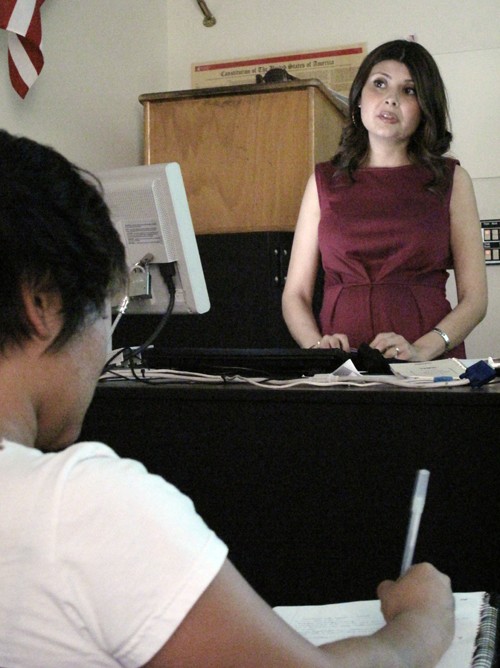Those looking to become professors at the UA may face more competition than they would have 10 years ago.
The number of tenure-track jobs at the university increased about 1.5 percent between 2001 and 2009 while the number of doctorate degrees granted in the United States grew about 52 percent during the same time period. This increase in potential applicants has created a tougher job market, according to some UA faculty.
The UA had 1,561 tenure-track jobs in 2001 compared to 1,585 in 2009, according to the UA Office of Institutional Research and Planning Support. The number of doctorate degrees awarded in the country grew from 44,160 to 67,000 between 2001 and 2009, according to statistics from the U.S. Department of Education.
Tenure-track jobs allow assistant professors to be promoted to associate or full professors after about six years if they show excellence in teaching, research and service. Tenured professors have more permanent positions, ensuring their academic freedom.
The criteria for landing tenure positions has become more stringent during the past decade, according to Ander Monson, an assistant professor of English who is in the third year of his tenure track.
“”The job market is different,”” Monson said. “”There are a lot of people who want these jobs. And teaching has become a more difficult profession, I think, in terms of the demands in our time, in the past 10 years.””
Many institutions have been moving away from hiring tenure-track faculty for about a decade due to its cost, according to Thomas Miller, associate provost for Faculty Affairs. The UA has resisted the trend of cutting these positions because tenured faculty members are vital to the institution, he said.
Earning a tenure-track job is challenging due to limited positions and the influx of eligible applicants, according to Marilyn B. Skinner, professor of classics who came to the UA as a tenured professor in 1991.
“”In humanities in general and classics in particular, there are just too many very qualified and exceptional Ph.D.s who don’t have tenure track jobs,”” Skinner said.
“”The competition is incredibly difficult. And this is nationally, it’s not just this one university.””
Skinner said the standards are much higher now at the UA than when she achieved tenure at Northern Illinois University in the 1980s.
“”Although I was a good teacher and tried to be a good teacher, I wasn’t held at Northern to that standard of excellence that people in my department and people in other departments are held to,”” she said.
The criteria for publication have also become more difficult to meet, according to Monson, who published three books before applying to teach at the UA.
“”You didn’t used to have to have a book to get a tenure-track job,”” Monson said. “”You definitely do now. At least at a major research school like Arizona.””
Monson said publication is one way to distinguish between qualified applicants.
“”The fact is, there’s a ton of people out there that have terminal degrees in Ph.D.s,”” Monson said. “”You have to have some criteria to separate people out.””
Some departments have also placed an increased emphasis on teaching quality over the past few decades, according to Chris Impey, university distinguished professor of astronomy.
“”The pressure to take teaching more seriously has increased,”” he said. “”I don’t think the landscape for research has changed.””
Impey said receiving grants in his field is difficult, which can affect people on the tenure track.
“”You have to be at the top of your game,”” Impey said. “”If you slide even a little bit you won’t be competitive any more. You won’t get grants. It’s a little unforgiving.””
Juggling research, publication and teaching can be challenging for assistant professors, according to Maritza Cardenas, an assistant professor of English who started her tenure track this year. She said she is always working to make sure she will have a book published by the time she comes up for tenure.
“”I think there’s a challenge of not having job security,”” Cardenas said. “”The pressure is ‘I need to have a book.’ I think you always just keep that in the back of your mind.””
Miller said the job market for people with doctoral degrees has been difficult since the 1970s and the increase in qualified applicants has not affected the quality of faculty hired at the UA.
The UA has always recruited those at the top of their fields, he said.
“”We are competing for the best of the best,”” Miller said. “”That competition is always going to be hot, always going to be heated.””









